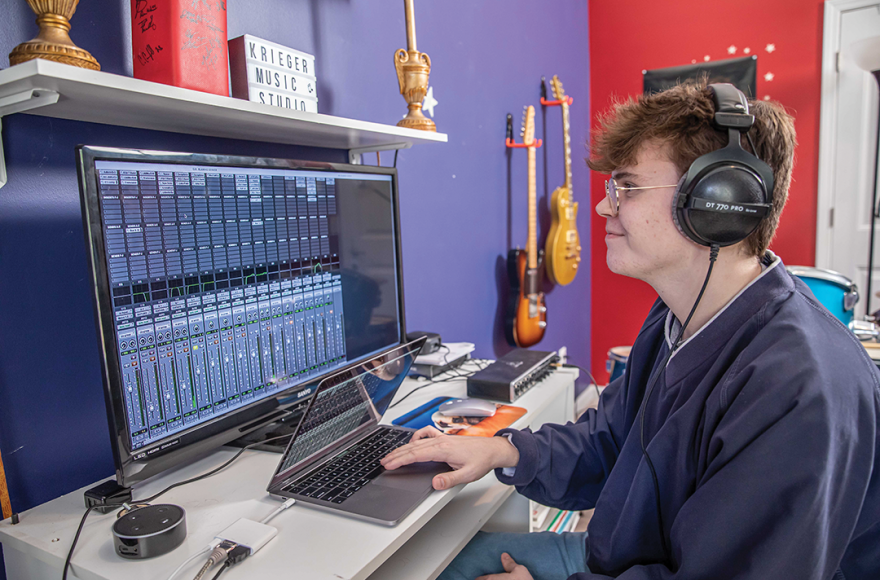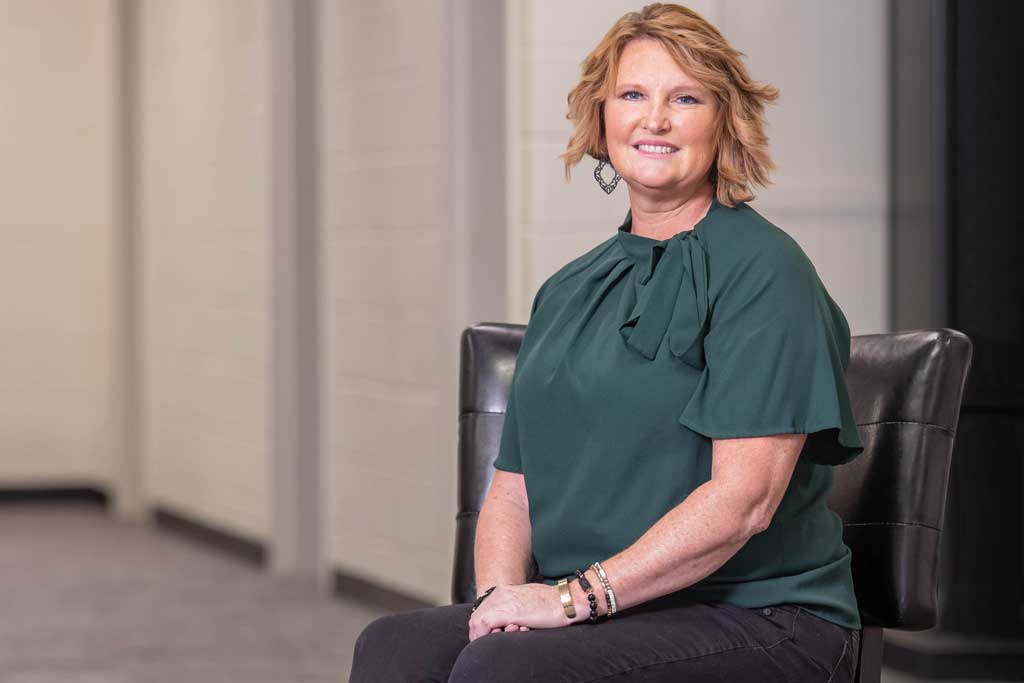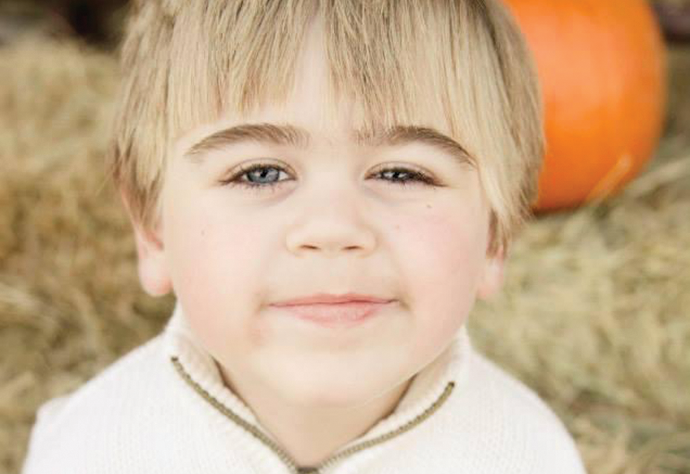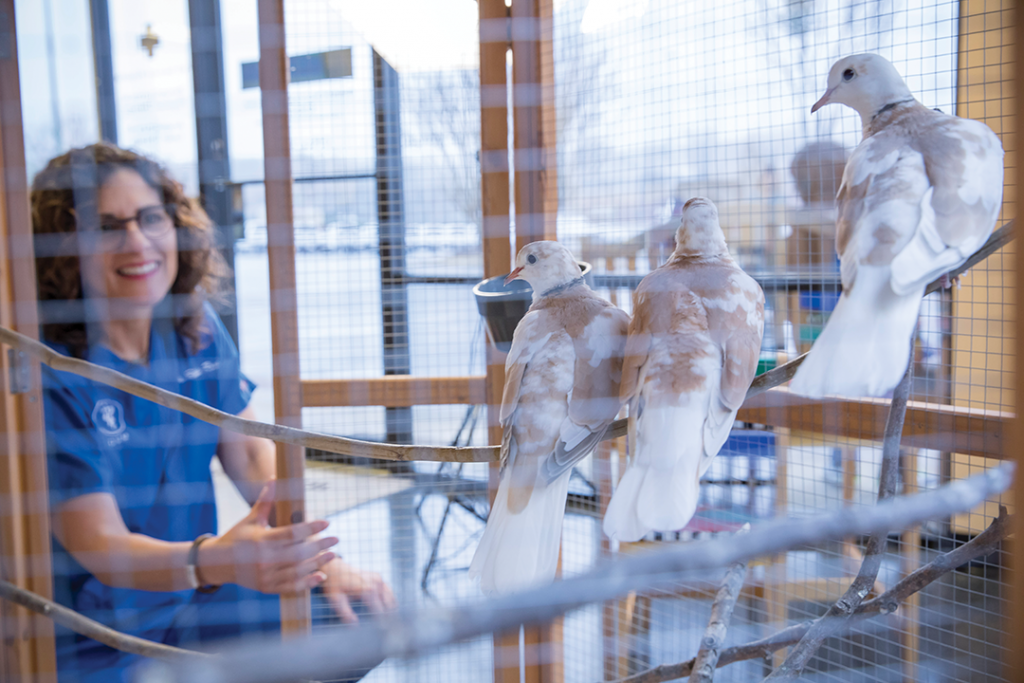Anderson Krieger was in fourth grade when he was diagnosed with leukemia. After enduring two remissions and an innovative new immunotherapy treatment, he now pursues his studies as a thriving college freshman. His family has chosen faith over fear and made it their mission to help others find healing from cancer.
Anderson Krieger was just 10 years old when he first complained of chest pain. Although his parents, Jon and Sally, gave him Advil, the pain persisted. The Kriegers took him to the emergency room after he also began experiencing shortness of breath. A possible virus diagnosis coupled with a clear chest X-ray led the family to believe that nothing serious was afoot. Three days later, they went out of town. When Anderson continued to complain, they thought perhaps he had pulled a muscle swinging a bat at baseball practice. Then the high fevers and vomiting began.
Alarmed, the Kriegers ended their trip early and drove home in the middle of the night. Their pediatrician told them to go straight to Atlanta’s Scottish Rite Hospital. Initial bloodwork revealed that something was amiss, so the hospital kept him overnight. The next day, the doctor led Jon and Sally down a long hall to a small room.

“I will remember that walk for the rest of my life,” Sally later wrote on the family’s Caring Bridge social media page. “As I clutched Jon’s hand, I wanted to freeze time. I knew something bad was about to happen, and I didn’t want to go there.”
The Kriegers sat down, then heard the words no parent ever wants to hear: Your child has cancer. “No!” they both cried out.
“My first thought was, ‘Is he going to die?’” Jon said. “I didn’t realize at the time that there were treatments or that cancer wasn’t necessarily a death sentence.”
“I wrestled with why it happened. We both knew that no matter what happened, he was still God’s child.”
Jon Krieger
Anderson was diagnosed with Acute Lymphocytic Leukemia (ALL). According to the American Cancer Society, ALL develops in bone marrow from immature forms of lymphocytes, a type of white blood cell. These cells play an important role in the immune system by fighting off infections. They make up lymph tissue, which is found in the tonsils, adenoids, spleen, thymus and lymph nodes. ALL has few risk factors, and most people—including Anderson—never learn why they develop it. A rare type of cancer, it progresses quickly and can be fatal within a few months when left untreated. However, it responds well to treatment and has one of the highest cure rates of all forms of leukemia.
“I wrestled with why it happened,” Jon said. “We both knew that no matter what happened, he was still God’s child.”
The Kriegers were thankful to discover that their doctor shared their faith.

“He prayed with us before we left the room. Then he went with us back to Anderson’s room to tell him and prayed with us again there,” Sally said. “We felt that God had the right doctor there with us. He was very positive and encouraging.”
Telling Anderson was one of the hardest things they had ever had to do, so they were grateful when the doctor started the conversation. Naturally, Anderson cried, and his first question was whether or not he would lose his hair. The doctor informed him that he would, then assured him it would grow back.
“After that, Anderson was just so brave and amazing. He would actively listen to everything his care team told him,” Sally said. “They were good about explaining everything, and the child life specialist was amazing. They made a devastating process so much easier for all of us.”
Anderson and his care team hit the ground running the next day. He endured a spinal tap, bone marrow extraction and surgery to implant a port to make it easier to receive chemotherapy. He received his first dose of chemo during the operation. It was the beginning of a projected three-year treatment plan—a standard protocol for kids with ALL that has since been reduced to two and a half years. Anderson, now 19, admits he did not realize at the time all the challenges that lay ahead.
“I knew it was serious, and I was scared and nervous, but I think it was to my advantage that I didn’t completely understand what was going on,” he said. “I didn’t get how much of my life it was going to take up. I got through it purely because I didn’t know what was going on. Well, that and my faith in God.”
Tests showed that the chemo was working, and the Kriegers were able to go home. However, the same chemo that was killing the cancer wiped out his bone marrow, leaving him vulnerable to pathogens. After just one month of treatment, Anderson ended up back in the hospital with a life-threatening intestinal infection called typhlitis. Despite receiving broad-spectrum antibiotics and medication to increase his white blood cell count—and giving his digestive system full rest—the infection perforated his intestines. Surgery was extremely risky, but when Anderson became septic, there was no other choice. Emergency surgery was performed in the middle of the night. He spent 13 days on a ventilator in the intensive care unit to give his body time to recover. When Anderson awoke from the vent, the Kriegers were dismayed to discover that he was unable to walk. The infection had spread into the muscles on his right leg. Anderson ended up spending nine weeks in the hospital.
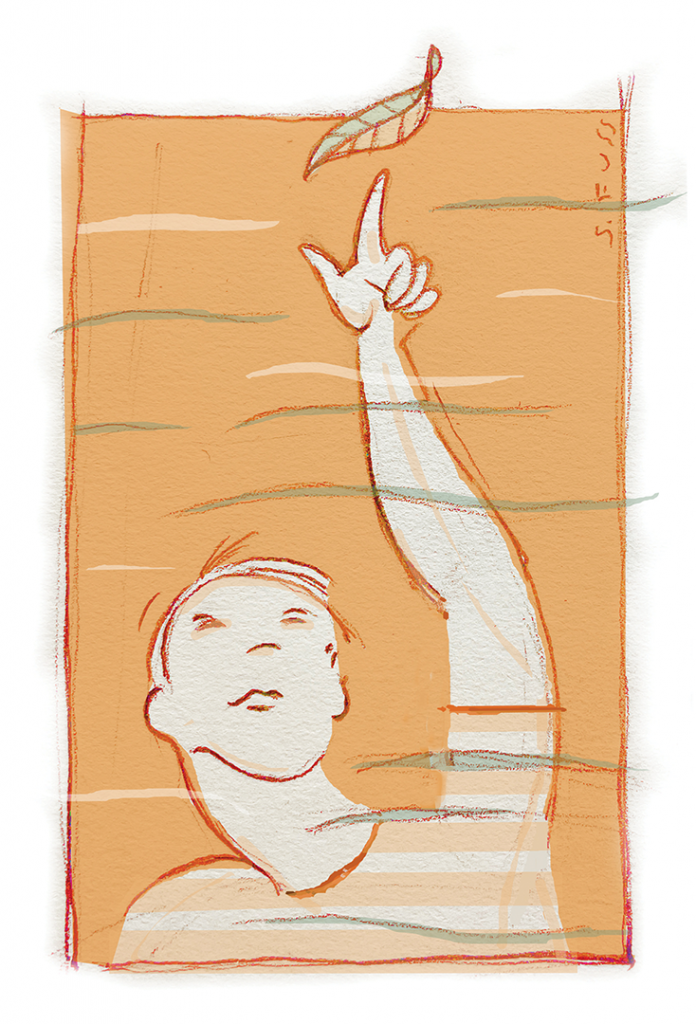
During that time, Sally and Jon struggled to adapt to a new routine, splitting their time between the hospital and home. They worked to maintain some degree of normalcy for their 12-year-old son, Ian. Sally wrote about Ian on Caring Bridge: “I miss seeing him every day and hate that our goodnights are mostly through FaceTime…. He keeps me in stitches with his laid back approach to life. He is truly the best medicine a mom could ask for during a time like this. Ian loves his brother, shares in the praises of each new blessing and can’t wait to have Anderson back home. I’m so proud of how brave he’s been through all of this.”
The Kriegers also expressed gratitude for the friends and family who stepped up to assist them.
“It was hard at first accepting help,” Sally said, “but you need to let everyone help, even if that’s praying with you, sending a few dollars on Venmo or bringing meals. That support was so meaningful to all of us.”
As soon as Anderson was able, he began an intensive physical therapy schedule to regain use of his leg. It took six months of daily therapy—inpatient and outpatient combined—before he could walk again. He also had to have an ostomy bag for 15 months to keep his bowel infection from returning. Anderson’s ALL was in remission, but he still had to take certain medications at home on a set schedule and attend regular clinic visits. He was able to return to school, and the Krieger family enjoyed a season of relative calm.
In February 2017, Anderson suffered a relapse. The doctors spoke about a possible bone morrow transplant but were unsure that he would have a good outcome. Instead, he began a two-year chemotherapy protocol that put him back in remission. In December 2019, at a regular checkup, the Kriegers learned that Anderson had relapsed once more.
“It was devastating, because we knew that with each relapse, it would be harder to treat,” Jon said. “With ALL, chemotherapy works better on younger patients. We were told that standard chemo wasn’t an option, but there were new targeted cell therapies that could help; and a bone marrow transplant was still in their back pocket.”
The doctors told them to go home for Christmas, and in January, Anderson went back to the hospital to prepare for CAR-T—a new immunotherapy treatment. CAR-T is an innovative way to prompt the immune system to fight leukemia. It involves removing T-cells from the patient’s blood and altering them to add chimeric antigen receptors, or CARs. These special substances help the T-cells attach to leukemia cells. The CAR-T cells are grown in the lab, then infused back into the patient’s blood. These special cells then seek out the leukemia cells and attack them. Referred to as a “living treatment,” CAR-T cells can detect and destroy cancer cells for many years. Emily Whitehead, the first patient to be treated in a clinical trial at Children’s Hospital of Philadelphia has been in remission for 10 years.
Anderson, his parents and his medical team were hopeful that the therapy would work by itself. Then the coronavirus pandemic struck. Since preparing for CAR-T is a lengthy process, Anderson had to be extra careful to avoid catching the virus. That summer, they heard the wonderful news that Anderson had no detectable cancer. After the pandemic lockdowns ended, Anderson was able to enjoy a normal senior year of high school. He graduated in 2021 and is now a freshman at Belmont University in Nashville, Tennessee, where he majors in audio engineering technology with a minor in music business.
“During his stay at CHOA, Anderson connected with a music therapist,” Jon said. “She handed him a guitar, and God began to develop this talent in him. He’s really getting to see the fruits of it now.”
Anderson’s music career represents a silver lining after all he has endured.
“I think I just really enjoyed the distraction of playing the guitar in the hospital,” he said. “Now I hope to work as an audio engineer or do publishing, [Artist and Repertoire, or identifying and developing talent for record companies].”
Click here to read more stories by Kari Apted.

